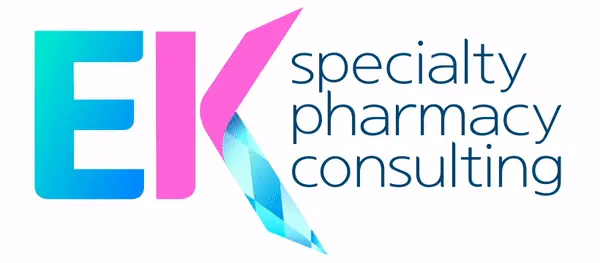Pharmacy audits can be a turning point for any business, revealing gaps in compliance or rewarding adherence to regulations. A single misstep can result in financial penalties, reputational damage, or worse — risking patient safety. According to the National Community Pharmacists Association (NCPA), over 60% of pharmacies face third-party payer audits annually, with recoupments often exceeding thousands of dollars per pharmacy.
Staying audit-ready is not just about compliance but safeguarding the trust and health of your patients. Let’s delve into actionable strategies to ensure your pharmacy stays ahead of audits and operates seamlessly.
Understanding Pharmacy Audits
What is a Pharmacy Audit?
A pharmacy audit is a comprehensive review conducted to ensure pharmacies adhere to regulatory standards, contractual obligations, and safety protocols. These audits may include:
Regulatory audits: Conducted by government agencies like the FDA or DEA to ensure compliance with federal and state laws.
Internal audits: Performed by the pharmacy itself to identify and address compliance gaps.
Third-party audits: Initiated by insurance companies or pharmacy benefit managers (PBMs) to verify claims accuracy and regulatory adherence.
Why Are Pharmacy Audits Important?
Compliance Assurance: Audits pinpoint compliance issues, ensuring adherence to legal requirements.
Patient Safety: Proper audits protect patients from medication errors or unsafe practices.
Business Continuity: Avoiding penalties and recoupments can secure the pharmacy’s financial health.
Example: A 2022 DEA audit revealed inconsistencies in controlled substance records in a Texas pharmacy, resulting in a hefty fine and temporary license suspension. This underscores the critical need for robust compliance measures.
Key Compliance Areas
1. Prescription Drug Dispensing
Accurate Processing: Double-check prescriptions for accuracy and ensure proper dispensing.
Labeling and Packaging: Labels must meet FDA requirements, providing clear dosage instructions.
Controlled Substances Management: Maintain stringent tracking and secure storage of opioids and other controlled drugs.
Patient Counseling: Educate patients on medication usage, side effects, and storage.
2. Inventory Management
Accurate Records: Regularly reconcile inventory to prevent discrepancies.
Storage Standards: Follow temperature and security guidelines to preserve drug efficacy.
Drug Disposal: Implement safe disposal practices for expired or unused medications.
3. Recordkeeping
Patient Records: Ensure HIPAA-compliant documentation of patient interactions and prescriptions.
Activity Logs: Maintain detailed logs of medication purchases, returns, and dispensing.
Audit Trails: Use systems that create robust digital trails for traceability.
4. Staff Training and Education
Regular Training: Conduct frequent compliance and regulatory workshops.
Ongoing Education: Keep staff updated on changing laws and industry standards.
Culture of Compliance: Foster an environment where compliance is a shared responsibility.
Best Practices for Staying Audit-Ready
1. Develop a Comprehensive Compliance Plan
Risk Assessment: Identify vulnerabilities such as frequent prescription errors or delayed inventory updates.
Clear Policies: Document step-by-step procedures for handling prescriptions, inventory, and patient data.
Accountability: Assign roles to ensure every staff member contributes to compliance efforts.
2. Implement Strong Internal Controls
Internal Audits: Conduct routine self-assessments to preempt external audit findings.
Policy Updates: Regularly review and refine compliance protocols.
Incident Reporting: Create a transparent system for addressing compliance concerns.
3. Stay Informed on Regulatory Changes
Monitoring Updates: Subscribe to alerts from the FDA, DEA, and state boards.
Networking: Attend pharmacy conventions and join industry associations for insights.
Educational Resources: Leverage webinars and newsletters to stay ahead of trends.
4. Utilize Technology to Improve Compliance
Management Software: Platforms like PioneerRx can automate inventory, reduce manual errors, and generate compliance reports.
Electronic Health Records (EHRs): Ensure patient data accuracy while enhancing recordkeeping.
Automation: Tools like barcode scanners and automated dispensing systems can minimize human error.
Example: A pharmacy in Florida leveraged inventory management software to reduce discrepancies by 90%, saving over $10,000 in potential recoupments.
Final Words
Staying audit-ready is a continuous effort that blends robust processes, advanced technology, and informed staff. Key takeaways include:
Invest in accurate prescription dispensing and recordkeeping.
Prioritize ongoing staff education and internal controls.
Leverage technology like management software to streamline compliance.
Compliance is not just about avoiding penalties; it’s about fostering trust and ensuring quality care for your patients. Partnering with experts like EK Specialty can provide you with the confidence to navigate audits effortlessly.
Take the first step towards a compliant future by exploring EK Specialty’s services today.
Sources
[National Community Pharmacists Association](https://ncpa.org)
[FDA – Compliance and Enforcement](https://www.fda.gov)
[DEA Diversion Control Division](https://www.deadiversion.usdoj.gov)
